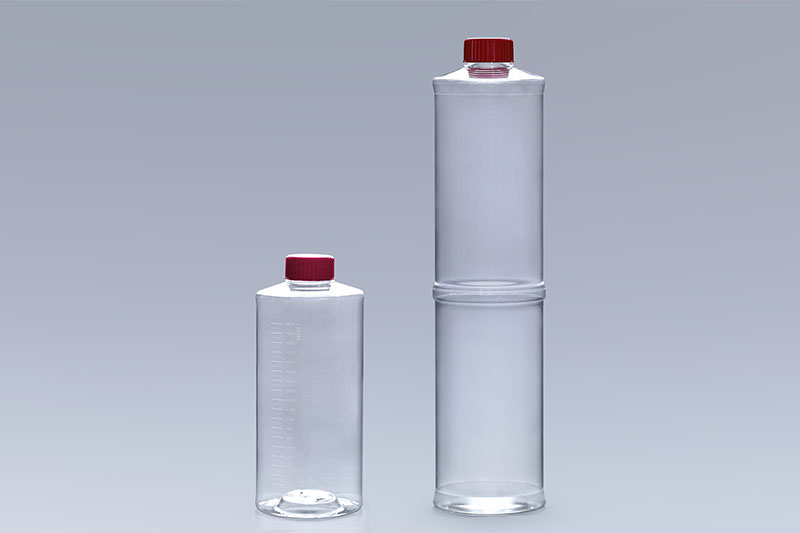Biocompatibility Testing of Cell Culture Roller Bottles
Cell culture roller bottles are a kind of cell consumables for cell culture. Through the supporting application of cell spinner bottle culture machines, they are suitable for large-scale cell culture. In the quality requirements of cell consumables, biocompatibility testing is essential, and it is the key to ensure that cells can be successfully cultured in this environment.
Biocompatibility refers to the biological, physical and chemical reactions caused by biological materials in specific parts of the body, that is, whether certain materials or drugs are "compatible" with the body or implanted in the body, and will not cause harm to the human body.
The biocompatibility of cell culture roller bottles requires that biomaterials have very low toxicity, and at the same time require that biomaterials can properly stimulate the corresponding functions of the body in specific applications. The evaluation of biocompatibility mainly refers to the requirements of International Standards Organization (International Standards Organization, ISO) 10993 and national standard GB/T16886, and is carried out through a series of in vitro and in vivo experiments.
The immune response and tissue repair processes in the body are very complex, and it is not enough to determine the biocompatibility of a material through a cell or tissue. Therefore, to evaluate and analyze the biocompatibility of cell spinner bottles, three key points must be clarified: first, no material is completely inert; second, biocompatibility is a dynamic process, not static; third, biocompatibility is not simply the property of the material itself, but the result of the interaction between the material and the environment of the body.
Scientific research institutions need to pay attention to whether the biocompatibility test is up to standard when purchasing cell culture roller bottles, so as to ensure the smooth progress of cell culture work.
 Cell Culture Roller Bottles
Cell Culture Roller Bottles
评论
发表评论